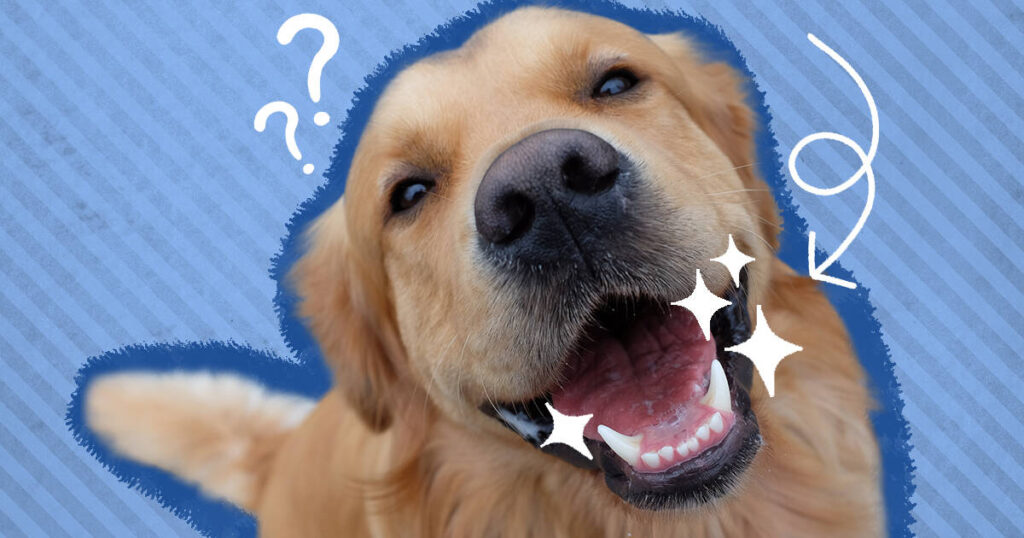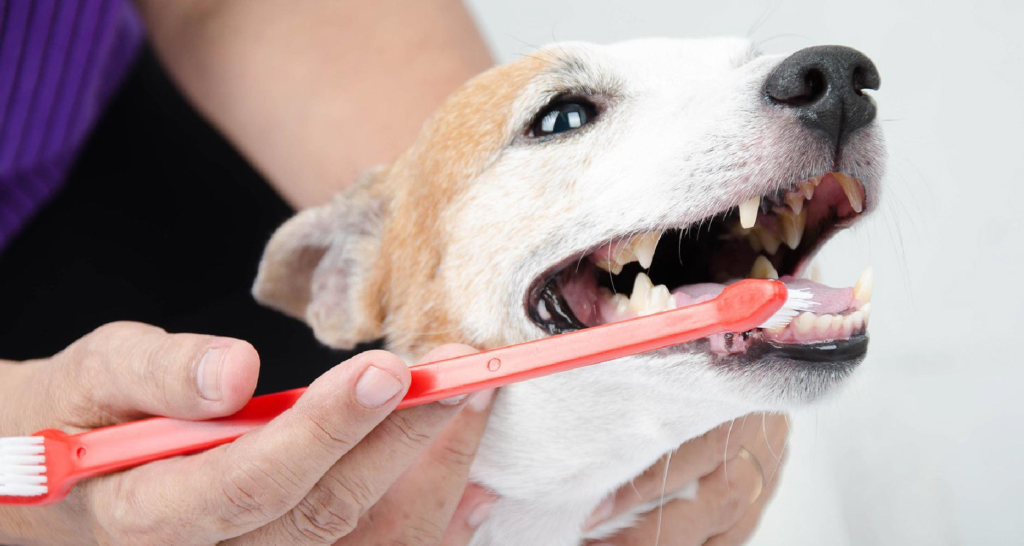Do Dogs Have Clean Mouths?

Do Dogs Have Clean Mouths?:- The idea that a dog’s mouth is cleaner than a human’s is a myth. While both humans and dogs have bacteria in their mouths, the types and quantities differ significantly. Dogs have around 600 distinct species of bacteria, while humans have roughly 615, and these microbes are mostly unique to each species.
In short, no, a dog’s mouth is not cleaner than a human’s.
However, there are similarities. For instance, both humans and dogs can harbor bacteria from the Porphyromonas family, which contributes to periodontal disease. This bacteria builds up on teeth, leading to bad breath, gum problems, and even bone damage around the tooth roots.
The good news is that early stages of periodontal disease can be treated in both dogs and humans with proper dental care at home. Just like people, dogs need routine professional cleanings to maintain healthy teeth and gums.

Caring for Your Dog’s Oral Hygiene
Do Dogs Have Clean Mouths?:- Your dog’s oral health is essential and shouldn’t be overlooked. The mix of bacteria in your dog’s mouth, combined with the various things they may chew or eat, makes regular dental care a must. Without proper attention, your dog can develop issues like periodontal disease, bad breath, and tooth decay. Since your dog can’t take care of their own teeth, it’s vital to schedule professional dental cleanings and establish a consistent at-home dental routine. Maintaining good oral hygiene is a critical part of keeping your dog healthy overall.
Is Your Dog’s Mouth Cleaner Than Yours?
Do Dogs Have Clean Mouths?:- Sadly, the answer is no. Both a dog’s and a human’s mouth are home to billions of bacteria from around 700 different species. While we both host bacteria, the types found in a dog’s mouth differ significantly from those in a human’s mouth. These bacteria are specialized to thrive in a dog’s mouth and are generally harmless to people.
Despite these differences, there are similarities between canine and human oral health. For example, the bacterial family Porphyromonas is responsible for periodontal disease in both species.
Periodontal disease begins with gingivitis, or gum inflammation, caused by bacterial plaque buildup. This plaque forms on the teeth, leading to bad breath, gum recession, tooth root abscesses, and bone loss around the tooth roots.
Fortunately, the early stages of periodontal disease are treatable for both dogs and humans with proper at-home dental care. Just as people benefit from regular professional cleanings, so do dogs.

How to Clean Your Dog’s Mouth?
Maintaining proper dental care is essential for your dog’s overall health. Regularly cleaning your dog’s teeth is a key part of this care. A great way to ensure your dog’s dental health is to schedule annual dental checkups. If your dog has ongoing dental issues like periodontitis, more frequent visits might be necessary.
At Broad Street Veterinary Hospital, our veterinarians perform a comprehensive oral examination during your dog’s dental checkup. We look for signs of dental problems, including:
– Extra or retained baby teeth
– Bleeding around the mouth
– Swelling or pain in the mouth area
– Plaque or tartar buildup
– Discolored teeth
– Loose or broken teeth
– Bad breath
Neglecting oral health can lead to significant discomfort for your pet. If you notice any signs of periodontal disease, such as reduced appetite (indicating tooth pain), unusual chewing habits, excessive drooling, difficulty holding food in the mouth, or foul breath, it’s important to consult your veterinarian immediately. They can help you schedule a dental appointment to address these issues.
Our complete dental care includes a thorough cleaning and polishing of your dog’s teeth, targeting both above and below the gum line. We also perform tooth probing and x-rays, followed by fluoride treatments and the application of a dental sealant to help prevent future decay and damage. If advanced periodontal disease is present, we’ll collaborate with you to create a tailored treatment plan to restore your pet’s mouth to a pain-free and healthy state.

Can Humans Catch Germs from Dogs?
The belief that a dog’s mouth is cleaner than a human’s might stem from the fact that we don’t usually swap diseases with our dogs through saliva. While a doggy kiss won’t give you the flu, kissing a human could.
Most bacteria in a dog’s mouth aren’t zoonotic, meaning they’re unlikely to make you sick. However, there are exceptions. Dogs on a raw diet are more susceptible to salmonella, which can be transmitted to humans. Additionally, if your dog has a habit of exploring the litter box, you might want to avoid sharing kisses.
In summary, kissing your dog is generally less risky than kissing another person, but that doesn’t necessarily mean your dog’s mouth is cleaner. They just carry a different set of germs that are less likely to affect us.
Should I Brush My Dog’s Teeth?
Do Dogs Have Clean Mouths?:- As a pet owner, keeping your dog’s mouth healthy is crucial in preventing dental disease. Here’s how you can maintain your dog’s oral health and keep those teeth clean:
1. Brush Regularly: Aim to brush your dog’s teeth daily using a finger brush or a child’s toothbrush. This helps remove plaque and debris, much like brushing your own teeth. If your dog is hesitant, try using dog-friendly toothpaste in flavors they enjoy. This can turn a routine task into a more enjoyable experience for your pup.
2. Use Plaque Prevention Products: Consult your vet for recommendations on plaque prevention products. These can be applied to your dog’s teeth and gums to create a barrier against plaque buildup.
3. Offer Dental Chews and Special Foods: Give your dog dental chews or specially formulated foods designed to reduce plaque and tartar. These can complement your brushing routine and contribute to better oral health.
4. Schedule Regular Check-ups: Don’t forget to book your dog’s annual dental appointment. Regular professional cleanings are essential for maintaining your dog’s dental health.
Incorporating these practices into your dog’s routine will help ensure a cleaner mouth and a healthier overall well-being. Your dog will appreciate the effort!
Also Read:-




